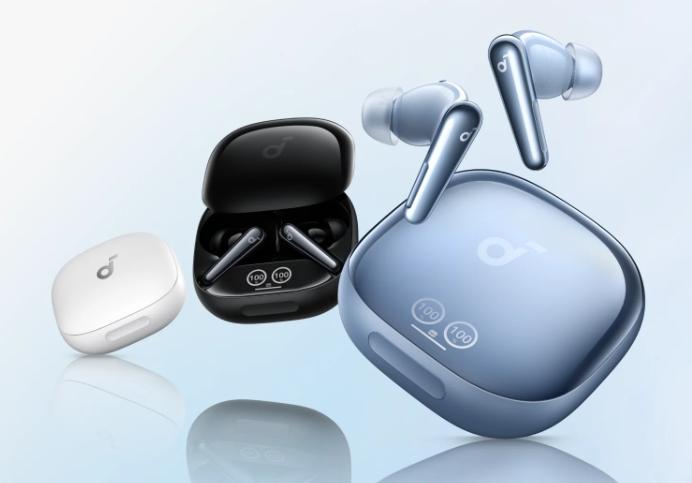
Wireless vs. Wired Earbuds: Which Is Better for You?
On October 21,2024 by Tom RoutleyIn the ever-evolving landscape of audio technology, earbuds have become an essential accessory for music lovers, commuters, and fitness enthusiasts alike. With the rise of wireless technology, consumers are faced with a choice: should they opt for wireless earbuds or stick with traditional wired ones? Both types have their advantages and disadvantages, making the decision largely dependent on individual preferences and needs. In this article, we will explore the key differences between wireless and wired earbuds, helping you make an informed choice for your audio experience.
How Do Wireless Earbuds Compare to Wired Ones?
Sound Quality
One of the most critical factors when choosing earbuds is sound quality. Traditionally, wired earbuds have been favored for their ability to deliver superior audio performance. The direct connection to the audio source allows for minimal signal loss and the potential for higher-fidelity sound. Audiophiles often argue that wired options provide a richer and more dynamic listening experience, particularly in terms of bass response and clarity. However, advancements in wireless technology are closing the gap. Many modern wireless earbuds now employ high-quality codecs, such as aptX and AAC, which enhance sound quality over Bluetooth connections. While wired earbuds may still have the edge in certain high-fidelity scenarios, for everyday listening, many users find that true wireless earbuds deliver satisfactory audio performance.
Convenience and Portability
When it comes to convenience, wireless earbuds have a clear advantage. The absence of tangled wires makes them easier to use, particularly during physical activities like jogging or working out. Many wireless models come with features such as touch controls, automatic pairing, and built-in voice assistants, adding an extra layer of convenience to the user experience. Wired earbuds, while reliable, can be cumbersome. The cables are prone to tangling and can limit movement, making them less ideal for active users. Additionally, wired earbuds require a headphone jack, which is becoming increasingly scarce on many modern smartphones and devices. For those who prioritize portability and ease of use, wireless earbuds are often the preferred choice.

Battery Life
Battery life is a crucial consideration when comparing wireless and wired earbuds. Wired earbuds do not require batteries, providing a constant power source as long as they are connected to an audio device. This means users never have to worry about charging them or running out of battery during an important call or while listening to music. On the other hand, wireless earbuds rely on battery power, which can be a limitation. While many models offer impressive battery life—ranging from 4 to 12 hours on a single charge—users need to remember to charge them regularly. Additionally, some wireless earbuds come with charging cases that provide extra power on the go, but this still requires users to keep track of an additional accessory.

Durability and Maintenance
Durability is another aspect worth considering. Wired earbuds are typically less prone to damage due to their straightforward design. However, the cables can fray or break over time, especially with frequent use. Wireless earbuds, while often designed to be more rugged and sweat-resistant, can experience issues related to battery degradation or connectivity problems. Users may also need to deal with software updates or compatibility issues with different devices. Proper care and maintenance can prolong the lifespan of either type, but it’s essential to be aware of these differences.
Price
Price can often be a deciding factor in the choice between wired and wireless earbuds. Wired earbuds generally tend to be more affordable than their wireless counterparts. This is largely due to the additional technology and features packed into wireless models, such as Bluetooth connectivity, touch controls, and noise cancellation. However, the price difference can vary significantly based on brand and features. While there are budget-friendly wireless options, high-end models can be quite expensive. Consumers should consider their budget and weigh it against the features that matter most to them when making a decision.
Conclusion
In conclusion, the choice between wireless and wired earbuds ultimately depends on individual needs and preferences. Wireless earbuds offer unparalleled convenience, portability, and modern features that cater to active lifestyles. In contrast, wired earbuds tend to deliver superior sound quality and eliminate the concerns of battery life. By weighing the pros and cons of each type, you can make an informed decision that best suits your audio needs. Whether you prioritize sound fidelity or ease of use, there’s a perfect pair of earbuds waiting for you in today’s diverse market.
Article Recommendations
Latest articles
Popular Articles
Archives
- November 2024
- October 2024
- September 2024
- August 2024
- July 2024
- June 2024
- May 2024
- April 2024
- March 2024
- February 2024
- January 2024
- December 2023
- November 2023
- October 2023
- September 2023
- August 2023
- July 2023
- June 2023
- May 2023
- April 2023
- March 2023
- February 2023
- January 2023
- December 2022
- November 2022
- October 2022
- September 2022
- August 2022
- July 2022
- June 2022
- May 2022
- April 2022
- March 2022
- February 2022
- January 2022
- December 2021
- November 2021
- October 2021
- September 2021
- August 2021
- July 2021
- January 2021
Leave a Reply